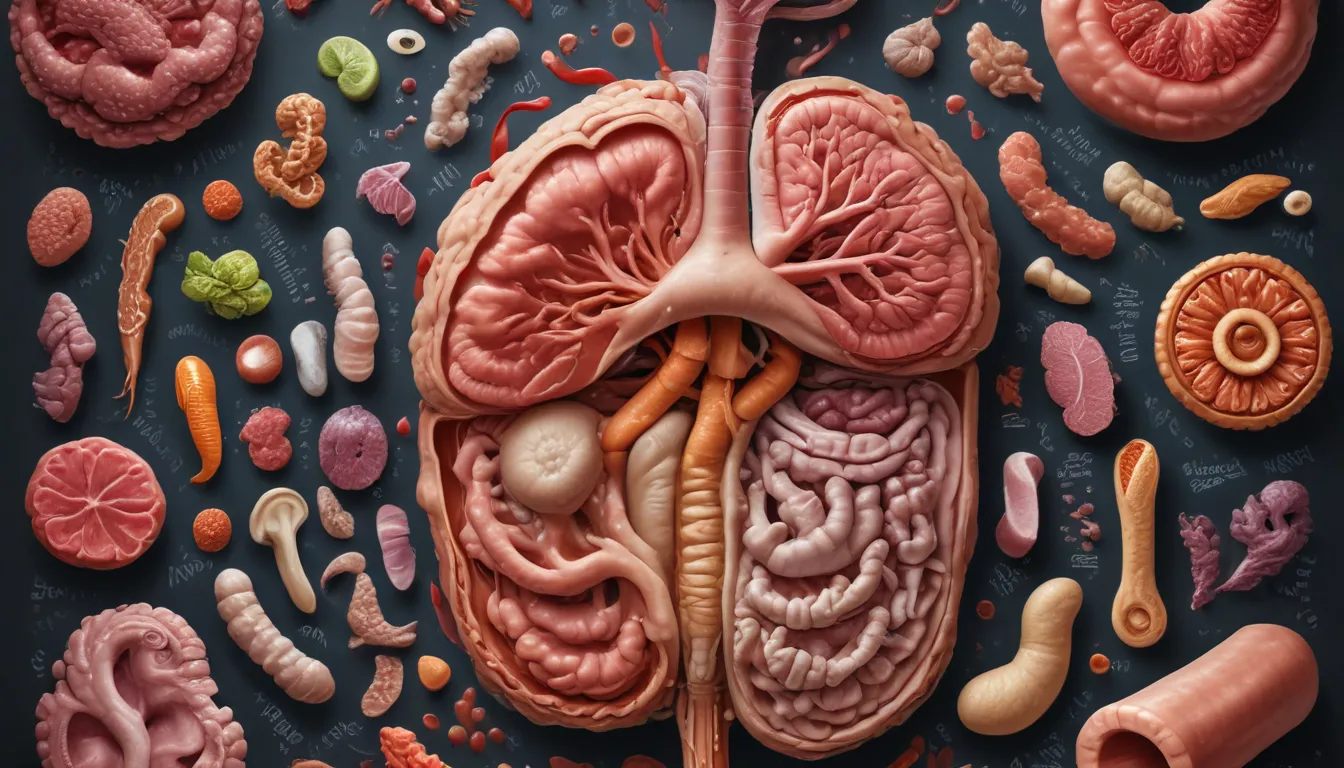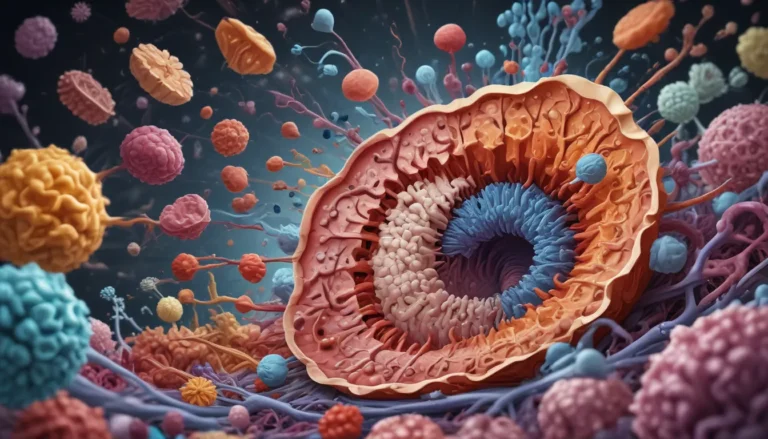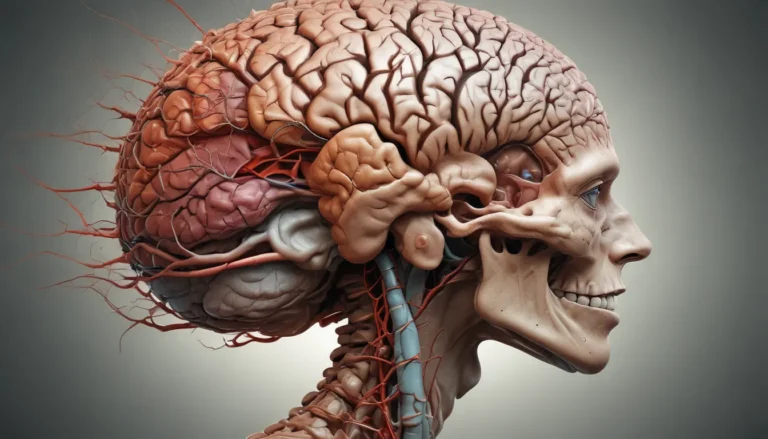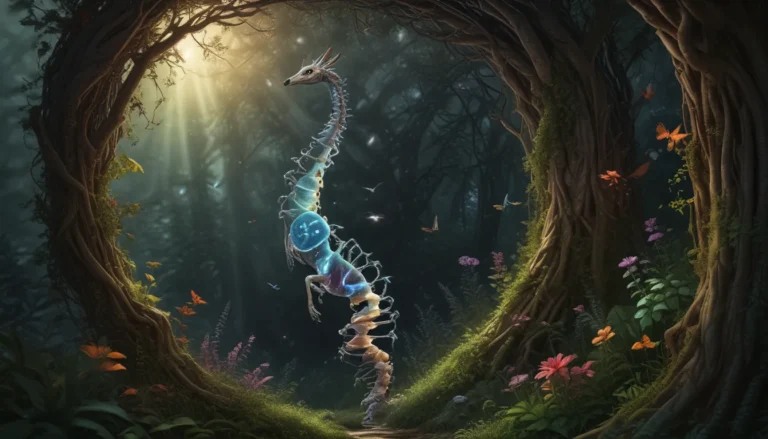A Note About Images: The images used in our articles are for illustration purposes only and may not exactly match the content. They are meant to engage readers, but the text should be relied upon for accurate information.
Welcome to a fascinating exploration of the human digestive system! From the moment you take a bite of food to the final excretion of waste, this intricate system plays a vital role in your overall health and well-being. In this article, we will uncover 19 astounding facts that will not only increase your knowledge but also leave you in awe of the incredible workings of your own body.
The Marvels of Digestion Unveiled
1. Your Digestive Adventure Begins in Your Mouth
The process of digestion kicks off as soon as you take a bite of food. Chewing your food not only breaks it down into smaller pieces but also mixes it with saliva, which contains enzymes that start the digestion of carbohydrates.
2. Home to Trillions of Helpful Bacteria
The human gut is a bustling ecosystem of microorganisms, known as the gut microbiota. These bacteria play a vital role in digestion, nutrient absorption, and even immune function, highlighting the symbiotic relationship between our bodies and these microscopic helpers.
3. The Surprising Length of the Small Intestine
Stretching approximately 20 feet in adults, the small intestine is a powerhouse of nutrient absorption in the digestive process. From the stomach to the large intestine, this vital organ ensures that your body receives all the essential nutrients it needs.
4. The Mighty Liver: Detox and Digest
Weighing about three pounds, the liver is not only the largest internal organ but also a multitasking marvel. From producing bile to detoxifying harmful substances, this organ plays a crucial role in keeping your body running smoothly.
5. The Acidic Environment of the Stomach
When you eat a meal, the stomach unleashes hydrochloric acid to break down food and kill bacteria. With a pH level of 1 to 2, the stomach is one of the most acidic environments in the body, showcasing its remarkable digestive prowess.
Delving Deeper into the Digestive System
6. The Enteric Nervous System: The “Second Brain”
Did you know that your digestive system contains its own nervous system? Known as the enteric nervous system or the “second brain,” it independently controls the movement of food through the digestive tract and helps regulate digestion, playing a crucial role in maintaining digestive health.
7. The Beneficial Bacteria of the Large Intestine
The large intestine, also known as the colon, is where water absorption and feces formation take place. It also serves as a habitat for beneficial bacteria like bifidobacteria and lactobacilli, which aid in digestion and support gut health.
8. The Pancreas: The Unsung Hero of Digestion
The pancreas is a powerhouse when it comes to digestion. It produces enzymes that break down carbohydrates, proteins, and fats in the small intestine while also releasing insulin and glucagon to regulate blood sugar levels, showcasing its vital role in metabolic processes.
9. The Ongoing Regeneration in Your Stomach
Remarkably, the cells lining the stomach are constantly being regenerated to protect the organ from the corrosive effects of stomach acid. This rapid cell turnover ensures the health and integrity of the stomach lining, highlighting the body’s remarkable ability to adapt and repair.
10. Villi: Nature’s Nutrient Absorption Boosters
The small intestine boasts finger-like projections called villi that greatly increase its surface area. These tiny structures are essential for absorbing nutrients from digested food and transporting them into the bloodstream, ensuring optimal nutrient absorption.
A Journey Through Digestive Wonders
11. The Gallbladder: Storing and Releasing Bile
Assisting in the digestion of fats, the gallbladder stores and concentrates bile, a substance produced by the liver. When you consume a fatty meal, the gallbladder releases bile into the small intestine, aiding in the breakdown and absorption of fats.
12. The Digestive Role of Saliva
Saliva contains an enzyme called amylase, which initiates the digestion of carbohydrates by breaking down complex sugars into simpler forms. This process begins in the mouth and continues as food traverses the digestive system, emphasizing the importance of thorough digestion.
13. Peristalsis: The Secret to Smooth Digestion
The esophagus employs peristalsis, a series of muscle contractions that propel food downward from the esophagus to the stomach. This rhythmic motion ensures the smooth and efficient movement of food through the digestive system, highlighting the orchestrated teamwork of our digestive organs.
14. Unraveling the Mystery of the Appendix
While the function of the appendix remains a subject of debate, recent research suggests that it may act as a reservoir for beneficial bacteria or play a role in immune system functioning. Despite its enigmatic nature, the appendix may serve a purpose in maintaining gut health and immune balance.
15. The Impact of Stress on Digestion
Stress can significantly influence the digestive system, causing it to slow down or speed up. These changes can lead to alterations in bowel movements and digestion, emphasizing the intricate connection between mental well-being and digestive health.
Embracing the Adaptive Nature of the Digestive System
16. The Expansive Capacity of the Stomach
Under normal circumstances, the empty stomach has a volume of about 50 milliliters. However, it can expand to accommodate up to 2-4 liters of food and liquid after a large meal, showcasing its incredible elasticity and adaptability.
17. The Timely Journey of Digestion
The duration of digestion varies from person to person, but on average, it takes between 24 to 72 hours for food to travel through the digestive system, from ingestion to elimination. This intricate process highlights the meticulous orchestration of digestive functions.
18. The Multi-Stage Digestion of Proteins
Proteins undergo a complex process of digestion, starting in the stomach where they are broken down into smaller polypeptides. This process continues in the small intestine, where enzymes called proteases further break down the polypeptides into individual amino acids for absorption and utilization by the body.
19. The Adaptive Nature of the Digestive System
The digestive system showcases remarkable adaptability to different diets and food types. For instance, individuals following a plant-based diet typically have longer intestines to facilitate the efficient absorption of nutrients, illustrating the body’s ability to adjust to varying dietary needs.
Embracing Digestion for Optimal Health
The digestive system is a marvel of intricate processes and harmonious interactions that ensure the efficient breakdown of food, extraction of nutrients, and elimination of waste. From the mechanical actions in the mouth to the chemical processes in the stomach, each step is essential for maintaining optimal digestion and overall health.
Understanding the complexities of the digestive system empowers us to make informed choices that support our well-being. By embracing a balanced and nutritious diet, maintaining a healthy lifestyle, and seeking professional guidance when needed, we can nurture the proper functioning of our digestive system and enhance our overall health.
Frequently Asked Questions
- What is the function of the digestive system?
-
The digestive system is responsible for breaking down food into smaller molecules, absorbing nutrients and water, and eliminating waste from the body.
-
What are the main organs of the digestive system?
-
The main organs include the mouth, esophagus, stomach, small intestine, large intestine, liver, gallbladder, and pancreas.
-
How long does food take to pass through the digestive system?
-
On average, it takes about 24 to 72 hours for food to travel through the digestive system, from ingestion to elimination.
-
How does stress affect digestion?
-
Stress can impact digestion, leading to changes in bowel movements, digestive slowdown, or acceleration. Long-term stress may contribute to digestive disorders like irritable bowel syndrome (IBS).
-
What are some common digestive disorders?
-
Common disorders include acid reflux, gastritis, ulcers, constipation, diarrhea, IBS, and inflammatory bowel disease (IBD).
-
How can I maintain a healthy digestive system?
-
Eating a balanced diet rich in fiber, staying hydrated, exercising regularly, managing stress, and avoiding smoking and excessive alcohol consumption can support digestive health.
-
When should I seek medical advice for digestive issues?
- Persistent or severe symptoms like abdominal pain, bloating, prolonged diarrhea, unexplained weight loss, or blood in your stool warrant consultation with a healthcare professional for proper diagnosis and treatment.
Conclusion
The digestive system stands as a testament to the intricate design and harmonious functioning of our bodies. From the initial breakdown of food in the mouth to the absorption of nutrients in the intestines, every component plays a crucial role in supporting overall health and well-being.
By delving into the wonders of digestion and understanding the essential functions of each organ, we gain a deeper appreciation for the remarkable capabilities of the human body. Through mindful choices and proactive health management, we can nourish our digestive system, optimize our well-being, and embark on a journey to holistic health and vitality.
As you explore the fascinating realm of the digestive system, remember that each fact you encounter is a testament to the incredible complexities and marvels of the human body. Let the knowledge you’ve gained inspire you to embrace a lifestyle that nurtures your digestive health and overall wellness.
Your Digestive Adventure Awaits!
Embark on a journey of discovery and empowerment as you uncover the remarkable intricacies of digestion. From the smallest enzyme in your saliva to the largest organ in your body, every component of the digestive system plays a vital role in supporting your health and vitality.
As you navigate the world of digestion, let curiosity be your guide and knowledge your compass. By embracing the wonders of the digestive system and making informed choices, you can embark on a transformative path towards holistic well-being and optimal health. Remember, the journey to vibrant health begins within, in the miraculous and extraordinary realm of your own digestive system.
Explore, Learn, and Thrive!
I hope this rewritten article on fascinating facts about the digestive system provides valuable insights and inspires you to appreciate the intricate workings of your body. If you have any further questions or want to delve deeper into the world of digestion, feel free to explore additional resources and embark on a journey of discovery and education. Let the wonders of the digestive system spark your curiosity and empower you to make informed choices for your health and well-being.






